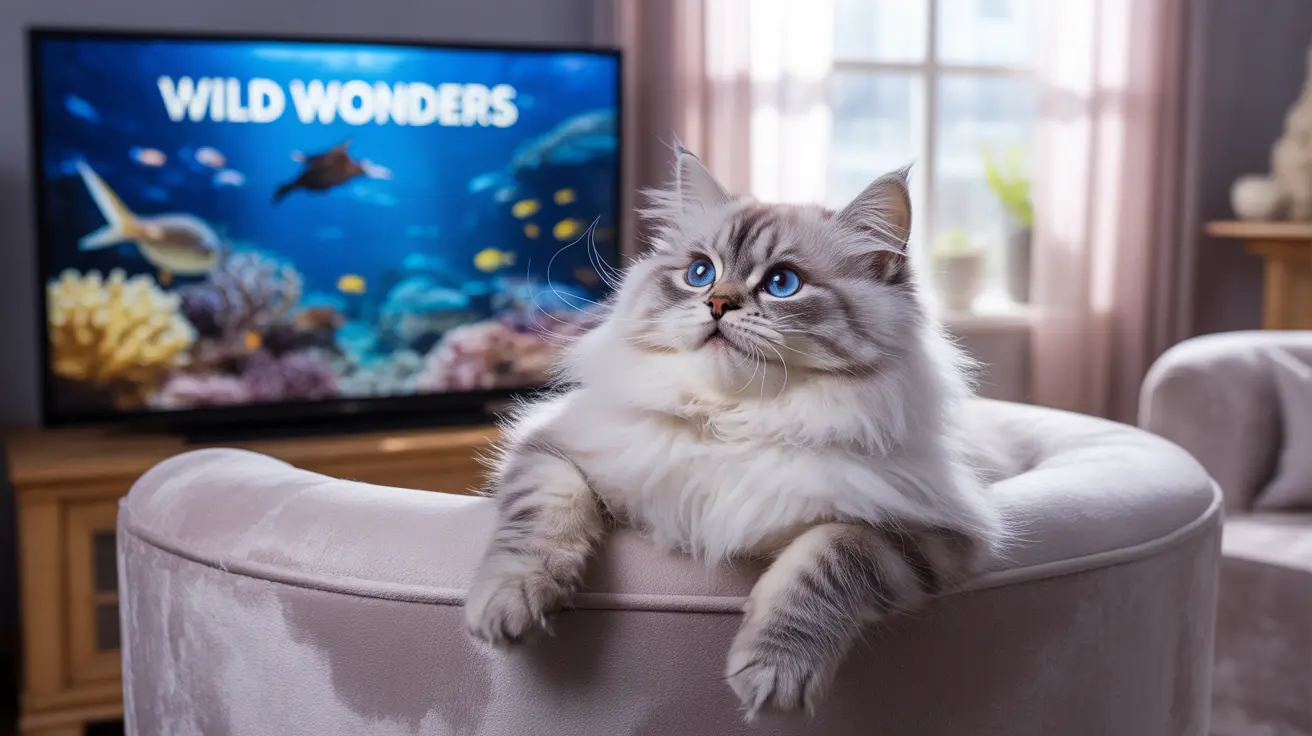Ever caught your cat transfixed by the television screen and wondered what's going through their mind? As more pet owners observe their felines engaging with screens, understanding whether cats genuinely like watching TV – and why – has become a fascinating topic of study.
Recent scientific research has revealed surprising insights into how cats perceive and interact with television, suggesting that while not all cats are TV enthusiasts, many find screen time both stimulating and entertaining. Let's explore the science behind cats' relationship with television and what makes some felines such dedicated viewers.
The Science Behind Cats and Television
Cats' unique visual capabilities play a crucial role in how they perceive television content. Unlike humans, cats process images differently, seeing them at a higher frame rate. This means they can detect individual frames on modern HD screens, making the viewing experience more realistic for them than on older television sets.
Research has shown that cats are particularly responsive to movement, especially when it mimics natural prey patterns. Their highly developed motion detection abilities make them especially attuned to quick, erratic movements typical of small animals – whether real or on screen.
What Catches Your Cat's Eye?
Studies indicate that cats are most attracted to specific types of television content:
- Birds and small animals in motion
- Fish swimming
- Insects crawling or flying
- Other cats or animals moving naturally
- Fast-paced nature documentaries
The combination of movement and authentic animal sounds can make television particularly engaging for cats, as it triggers their natural hunting instincts.
Benefits of TV Time for Cats
While TV shouldn't replace active play, it can offer several advantages for indoor cats:
- Mental stimulation and enrichment
- Reduced boredom when home alone
- Environmental enrichment for indoor cats
- Potential stress relief
- A form of passive entertainment
Safety Considerations and Best Practices
When allowing your cat to watch television, keep these important safety tips in mind:
Secure your TV properly to prevent accidents if your cat tries to interact with the screen. Position the television at a safe height and distance to discourage physical contact. Monitor your cat's behavior during initial viewing sessions to ensure they respond positively to the content.
Individual Cat Preferences
Just like humans, cats have unique personalities and preferences when it comes to entertainment. While some cats might spend hours watching nature programs, others might show complete indifference to the screen. Age, personality, and previous exposure to screens can all influence a cat's interest in television.
Frequently Asked Questions
Why do some cats like watching TV while others ignore it?
Individual personality, early exposure to screens, and natural prey drive all influence a cat's interest in television. Some cats are simply more visually stimulated than others, much like how some cats are more interested in laser pointers or toys.
What types of TV content are most appealing to cats?
Cats typically respond best to programs featuring birds, rodents, fish, and insects in motion. Nature documentaries and specially designed "cat TV" programs that focus on prey animals tend to be most engaging.
Can watching TV help reduce my cat's boredom or anxiety?
Yes, television can serve as one form of environmental enrichment for cats, potentially helping to reduce boredom and anxiety, especially when left alone. However, it should be used as part of a broader enrichment strategy that includes interactive play and physical activities.
Is it safe for cats to watch TV, and can it harm their eyesight?
Modern televisions are safe for cats to watch and won't harm their eyesight. However, the primary safety concern is preventing cats from knocking over TVs or scratching screens while attempting to catch moving images.
How can I safely use TV to entertain my cat without encouraging destructive behavior?
Mount your TV securely, supervise initial viewing sessions, and provide alternative outlets for hunting behavior. If your cat becomes overly excited, consider creating a comfortable viewing spot at a safe distance from the screen.
Conclusion
While not every cat will be a television enthusiast, many felines can enjoy and benefit from controlled screen time. Understanding your cat's individual preferences and ensuring safe viewing practices can make television a valuable tool for environmental enrichment and entertainment in your cat's daily routine.






